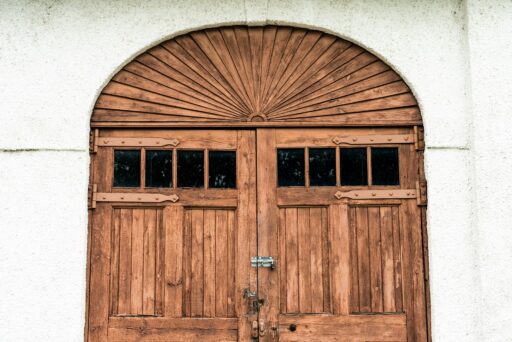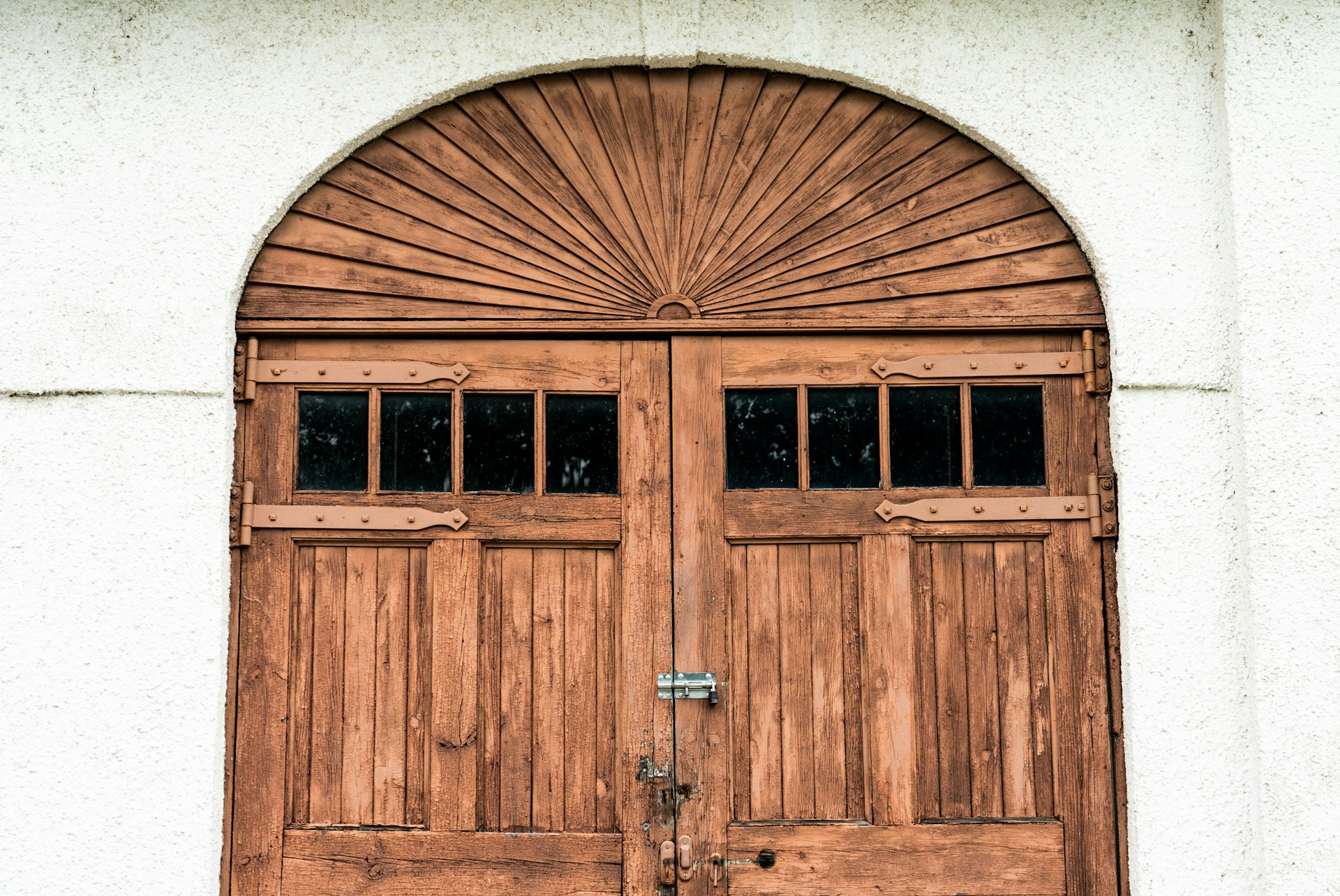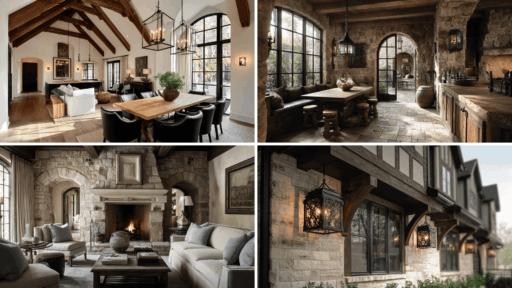Wood has long been a material of choice in architecture, not only for its strength but also for the sense of permanence it conveys. Businesses that choose wood doors often recognize the immediate impression these fixtures create for clients and customers. The natural grains, textures, and tones of wood communicate quality and attention to detail, helping a brand establish credibility the moment someone enters the building. Unlike synthetic alternatives, wood never feels artificial or disposable, making it a preferred option in industries where trust and reputation are essential.
In commercial spaces, doors serve a dual function as both practical barriers and statements of design. A well-crafted wood door provides more than just entry or exit; it frames the entire experience of a workspace. Clients notice details, and something as simple as a door can influence how a company is perceived. Businesses in finance, law, and hospitality often lean into this perception by investing in high-quality wooden fixtures.
For companies evaluating long-term investments in office or retail spaces, the question becomes one of value. A wood door, while initially more costly than cheaper options, retains its beauty and usability for decades with proper care. In the broader context of commercial design, this durability makes wood an investment in both function and presentation.
Durability as a Core Business Requirement
In commercial settings, doors face a far higher level of use than they do in residential properties. Hundreds, sometimes thousands, of people may pass through them daily, which places significant stress on the materials and construction. Unlike alternatives such as hollow metal or fiberglass, wood doors hold up under this traffic while retaining their form and function. With advancements in engineering, many modern wood doors are reinforced with solid cores that prevent warping and cracking even under heavy usage.
The durability of wood extends beyond structural resilience. It also includes the capacity of the material to withstand surface wear from constant contact. From scuffs left by footwear to repeated impact from carts or equipment, wood responds well to refinishing and repairs. Where synthetic doors may need full replacement after damage, wood can often be restored with sanding, staining, or patching. This makes wood not only strong but adaptable, ensuring longevity and sustainability in commercial environments.
Businesses also recognize that maintenance costs can quickly erode the initial savings of cheaper door alternatives. A low-cost product that requires replacement every few years creates unnecessary expenses and disruptions. Wood, when properly maintained, offers decades of service. For companies that prioritize financial efficiency and reduced downtime, durability is not a luxury but a fundamental requirement.
Aesthetic Value That Enhances Brand Identity
Design matters in business, and the visual presence of a workplace sets the tone for interactions with clients, employees, and partners. Wood doors deliver a level of elegance that other materials struggle to replicate. Their warmth and variety of finishes allow companies to choose a style that aligns with brand values. A law office might prefer a deep mahogany for gravitas, while a modern creative agency could opt for lighter maple tones that feel fresh and inviting.
The role of aesthetics goes beyond simple decoration. The consistency of design elements such as doors can unify the look of a space, contributing to a coherent brand identity. When customers walk into a business, they notice how each element ties together, and wood naturally provides a versatile foundation. Whether combined with glass inserts for a contemporary appearance or left solid for privacy and formality, wood offers a range of options without compromising sophistication.
Beyond first impressions, aesthetics also influence employee satisfaction. A workspace that feels thoughtfully designed encourages productivity and pride. Staff are more likely to feel engaged in an environment that communicates professionalism and care. In this sense, wood doors become not just a functional piece of the workplace but part of a broader strategy to reinforce company culture.
Energy Efficiency and Environmental Benefits
Modern business operations increasingly focus on energy management and sustainability. Wood doors contribute meaningfully to these goals by providing natural insulation. Unlike hollow-core alternatives, solid wood offers a density that helps maintain interior temperatures. This contributes to reduced heating and cooling costs, which can add up significantly in large commercial buildings.
The environmental story of wood is also compelling when sourced responsibly. Many wood doors are produced from sustainably managed forests, making them a renewable option. With certifications such as FSC or SFI, businesses can demonstrate a commitment to responsible sourcing. This aligns with corporate sustainability goals and can be highlighted in marketing and public relations strategies.
Additionally, the longevity of wood reduces waste over time. While cheaper alternatives may require frequent replacement, a well-maintained wood door can last for decades. Each extension of its lifecycle reduces the environmental footprint associated with manufacturing, shipping, and installation. For businesses aiming to meet environmental benchmarks or appeal to eco-conscious clients, wood doors become an effective and visible choice.
Security and Sound Control
In many commercial settings, security is a non-negotiable factor. Wood doors provide a strong physical barrier that can be further reinforced with advanced locking systems. Their solid construction makes them resistant to forced entry while still maintaining an inviting appearance. Businesses can install wood doors that meet or exceed safety codes without sacrificing design.
Sound control is another crucial consideration in business environments, particularly in industries that value confidentiality. The density of wood naturally reduces sound transfer, creating quieter spaces. In law firms, medical offices, or corporate headquarters, this helps maintain privacy and focus. Glass or hollow-core alternatives cannot match the same level of acoustic control without expensive modifications.
The combination of security and sound reduction adds measurable value to a workplace. Employees can operate in an environment where distractions are minimized and sensitive discussions remain private. This not only enhances day-to-day operations but also strengthens trust with clients who expect professionalism in every interaction.
Flexibility in Design and Customization
One of the reasons wood continues to dominate in commercial design is its flexibility. Businesses can select from a wide variety of woods, stains, and finishes to achieve the exact look they need. This customization is not simply aesthetic; it also allows for functional adaptations such as fire-rated cores, glass panels, or integrated hardware.
The versatility of wood enables businesses to create cohesive environments that reflect their brand story. Whether a company seeks a traditional, modern, or eclectic look, wood can be tailored accordingly. Unlike mass-produced alternatives, wood doors can be designed to meet specific architectural requirements, ensuring that they integrate seamlessly into a building’s overall design.
Custom options also allow businesses to future-proof their spaces. As branding evolves or as design standards shift, wood doors can be refinished, repainted, or reconfigured rather than replaced. This adaptability makes them a practical long-term solution for commercial facilities that anticipate growth or change.
Cost Efficiency Over the Long Term
At first glance, wood doors may appear to carry a higher upfront price compared to other options. However, when viewed through the lens of long-term ownership, they often prove more cost effective. Their durability reduces replacement frequency, and their ability to be refinished extends usability far beyond alternatives. Businesses that invest once often enjoy decades of service before considering major upgrades.
Maintenance costs also remain relatively low when compared to synthetic or metal doors. Small surface imperfections can be addressed in-house with minimal investment, while full refinishing services are affordable compared to full replacements. Over time, the financial efficiency of maintaining wood far surpasses the recurring cost of replacing cheaper alternatives.
Beyond direct savings, businesses also benefit from the intangible returns of wood doors. Improved aesthetics enhance customer perception, durability minimizes downtime, and energy efficiency lowers utility bills. These combined factors create a comprehensive case for wood as the more prudent investment.
Final Thoughts: A Practical and Strategic Choice
Wood doors represent more than a design preference; they embody a strategic decision that aligns with durability, aesthetic value, and financial sense. In commercial environments where first impressions, long-term performance, and brand identity matter, few materials can compete. The blend of strength and style makes wood an enduring solution for businesses across industries.
Choosing wood is not only about present-day needs but also about planning for the future. A company that invests in high-quality fixtures signals confidence and stability, both to clients and to employees. The door, often overlooked as a detail, becomes a quiet but powerful symbol of the standards a business sets for itself.
For organizations seeking to balance practicality with presentation, wood doors stand out as an investment that pays dividends across decades. They are a reminder that in business, the best solutions are often those that combine function with form, delivering value in ways that extend well beyond the surface.








